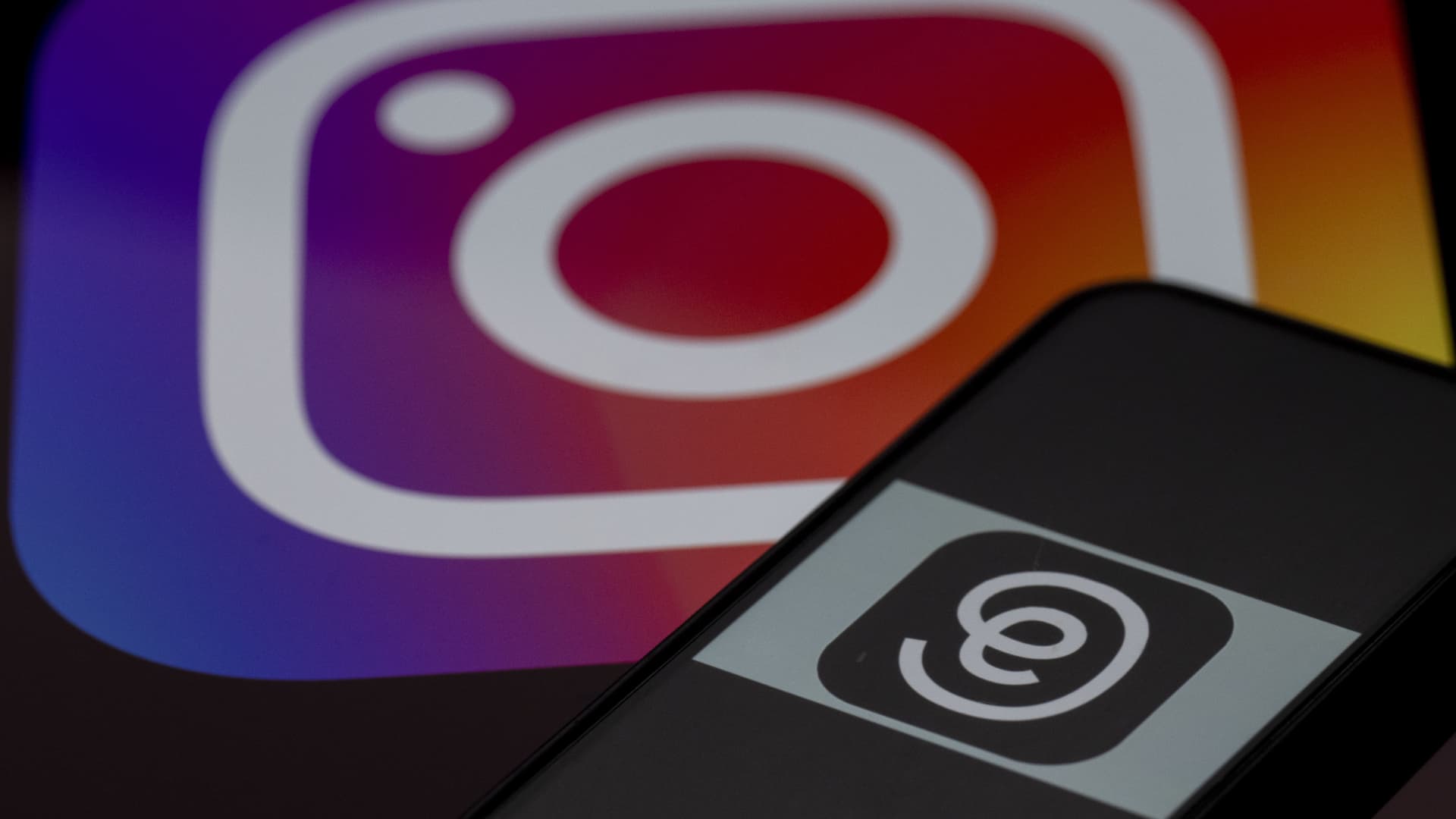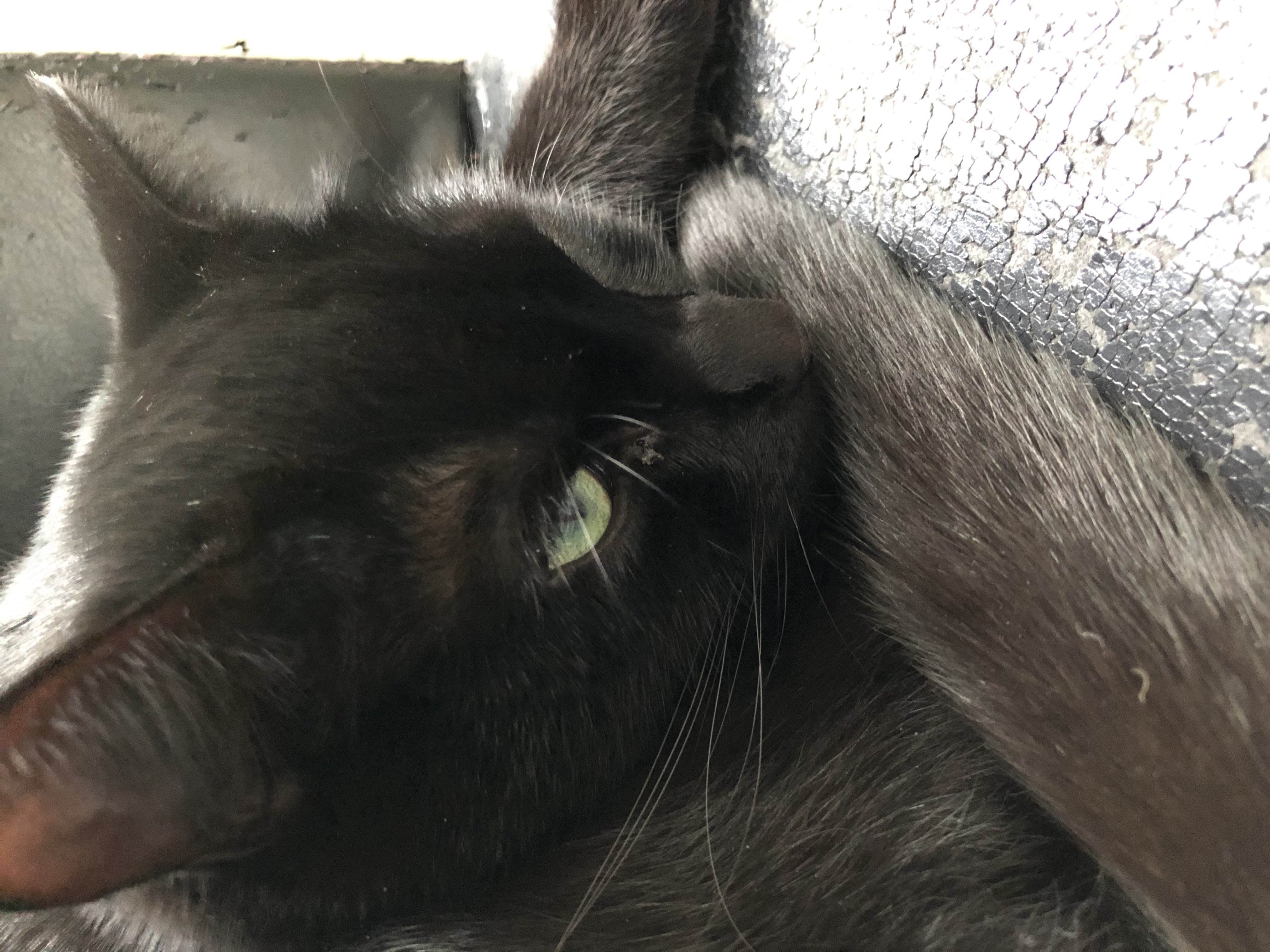I mean that makes sense. People entered the new hot thing on the market but it’s still very half-baked. No hashtags, no following only tab, no likes tab. If it wasn’t for the sign up via IG, this would’ve been DOA.
Imagine if they just had feature parity with Mastodon. It would’ve probably replaced Twitter by now.
no following only tab.
Holy crap, this is bad in another level
Instagram I don’t believe has it either, and was a major breaking point for me years ago when someone coaxed me into trying it. Their “algorithm” has no place in a followers-only tab, so they will likely never add it.
I really hated when they switched from chronological order to the algorithm, now the app is useless except for my gf sending me her daily memes, the feed is just a bunch of nonsense from people I don’t know or content from days ago from people I do
the feed is trying to get you to look at ads and buy shit. that’s what
You can turn off the algorithm stuff in the settings, but it resets monthly.
IG does have Following (posts from everyone you follow) and Favorites (the ones you give that designation to). When you open up the app they give you everything (accounts you follow and those they suggest.for you). The drop down to pick Following or Favorites is hidden in the IG logo.
Instagram has a following tab, you have to tap the logo at the top and switch it. It also reverts back to the algorithm frequently so have to constantly switch it around.
It does have a following tab actually, it’s an option at the top of the app, I forget exactly where
I think there was a following only tab at some point. Not sure if it exists now though.
Yeah, amidst all the posts about Threads, the most insightful articles I saw were the ones stating just how dogshit the actual user experience was. And that experience is just "get users to see more ads among the regular content.
It’s like, people don’t even care what they join. They just care that it has the POTENTIAL to be the NEXT BIG THING, so they need to be on ground zero. All for the show off, zero to do with the specifics of the platform.
Insightful in the sense that it adequately matched the reception shit like NFT powered user spaces got, with investors thinking Blockchain wass the Next Big Thing. It’s all theatrics.
Surfer Economics, the only thing you need to be successful is ahead of the wave.
“Social media” is just bad on another level these days. It’s no longer about keeping up with family and friends and 100% about cramming the algorithm down your throat and “helping” you to discover new entertainment from people you’ve never heard of. I’m done.
I’m actually working on building my own.
It never amazes me how little billion dollar companies actually do with their money.
Honestly, most dev effort at big companies goes into ensuring nothing breaks or slows performance. When news articles are written about your mistakes, most developers and managers try not to break things.
Making new stuff happens, but it just can’t happen as fast as at small companies where 90% uptime is good enough.
That said, it doesn’t excuse launching products half baked. No reason an unlaunched product can’t be iterated on quickly during dev.
No reason? It’s probably meetings, then more meetings, add some meetings, and you guessed it, meetings.
Like the follow tab mentioned it’s probably first product owners meetings to agree on what a user would expect… and there’s always someone having a wild opinion or two that needs to be “hashed out”. Then when that’s done it’s meetings with the UX team, then they have a meeting on their own, then a new meeting with product owner, UX and designers, then after that frontend team is in the loop, then back to UX and prod owner, then a new round, then it’s time for backend to come in, first one with PO and frontend, then a technical one to agree on how to do it, then database team is involved, they refuse to change a small thing and expected functionality needs to be changed, back to PO, UX, frontend, backend, and then finally maybe a dev or two can sit down and add it. Which takes 2 hours. After six weeks of meetings.
And then comes testing of course, and signoff on the functionality.
“Fast” is nowhere in enterprise development.
Totally agree about the amount of coordination overhead. That is a huge amount of time to do anything.
But even so, it’s even slower, by a lot, once you pull the ripcord and need to keep the site working while you update it.
Prior to release you don’t need to have branch and release then QA then deploy. You can just modify schemas and drop existing user data without needing to migrate anything. You can change the look of the interface without angering users who generally hate change.
Just the cycle of releasing new features carefully is a ton of overhead.
I’ve spent entire days just rolling out code to change which domain name is used to refer to some images because doing it quickly would overwhelm the image servers due to the caches being unpopulated. 100% of that would be unnecessary prior to going live.
Wait, you can’t see a timeline of people you follow?!? And no hashtags?
The follower-only limitation is likely by design. They don’t want you to see only those you’re interested in because it limits advertising power. This platform is almost entirely geared for selling things to its users.
OK OK guys hear me out, what we made twitter but with VR? We can rub our willies together
-Zuckerberg probably
How could you launch such an app.
Isn’t this to be expected of any brand new platform though? Everybody floods in the first few days to check it out, and then it kind of tapers back to more realistic numbers as the novelty wears off. Not that I want to see it succeed, I’m just not sure these numbers are a good barometer for how successful the platform will be.
Was literally thinking as I read the headline “Ok… how did Lemmy’s numbers fluctuate after the initial burst?”
We’re seeing the results of that right now. The reddit blackout was June 12-14, a month ago. We’re finding out how many people checked things out during that and left as the users / 6month and users / month start to separate.
The actual kick for me was the block of apollo on the 1st of july
Same, I had made a mastodon account a few months back, so I played with that for a bit, then figured out lemmy. Just in the last 7 days, it feels like engagement has increased ten fold. I feel actually impactful here; which leads to more of my personal effort.
The guilty pleasure I get to indulge in while watching corpo-reddit flail around is just icing.
As a fellow Apollo refuge, check out wefwef/voyager. Really helps with the transition. Lemmy webapp heavily based on Apollo’s design.
Memmy for Lemmy is Apollo’s rightful heir
I have Memmy installed as well but keep gravitating back to wefwef.
Whichever one gets hide on scroll first will win for me.
Memmy has that in Settings > Content !
deleted by creator
Yes. This is a very normal engagement pattern. It feels like the author did no real research at all, and is spinning a narrative.
I don’t even think their early growth numbers were real. Threads is an offshoot of Instagram, and there have been reports of accounts appearing spontaneously. It’s entirely possible that they simply populated the service using existing Instagram accounts.
I get the feeling that nobody wants to deal with new platforms anymore. They are actively hostile to the idea and come in with unrealistic expectations. They want all the staple features and stability of a decade old major platform from day 1.
Maybe, but that’s a HUGE decrease. These aren’t flight-of-fancy numbers, these are exodus numbers.
Social networks really rely on a critical mass of users for viability. A lot of the draw for many twitter users is the engagement from celebrities and influcers.
I think a lot of people wanted to leave twitter, but just didn’t really have a viable alternative with the critical mass of users and the celebrity engagement. If they already were uneasy about twitter as a platform and have something else to scratch that itch… I think the better question would be “What does Twitter offer that could draw them back?”
Yup, we just won’t really know for a month or two, consecutive months of dropoff is something to celebrate.
This could literally just be attributed to it being weekdays.
deleted by creator
Sort of, yeah, but it’s worth recognizing that this is a little different insofar as this isn’t an independent new platform, this is directly linked to and leveraging the existing audience of Instagram into the platform.
This isn’t the case of an independent new platform like, say, Kick trying to draw in an audience away from existing platforms to theirs. There’s a distinct advantage here that they’ve clearly benefited from in terms of lowering the barrier to entry by not requiring a new account to be made. It may not sound like much, but every point of friction counts for anything new.
Uh oh, better change the feed to include more hate and racism to up the engagement. Works for Twitter and Facebook, should work for threads
There is an inherent problem with microblogging sites. They don’t help you understand anything. All they do is give you small blips of information, text, memes, short videos, drawings, pictures. You can’t state your full opinion and it is hard to be noticed or seen because most people don’t bother getting into any topic in detail. On the other hand, social news plafrorms - like Lemmy and Kbin and even Reddit - encourage dialogue and discourage toxicity.
Microblogging has changed. Now, I much prefer talking about current events on a social news platform than on a microblogging platform. Right now microblogging sites are good for art or talking about general interests and things in your day-to-day life, maybe getting some news out of them (if the algorithm wants you to because algorithms suck when it comes to news, especially in a divided society such as this one), but not much more. Plus, the “balkanization” of microblogging with services like Tumblr, Threads, Bluesky and Mastodon makes it so that you divert attention to different things in different places, while things like the threadiverse can be a hub for pretty much everything because information doesn’t flow as fast as on microblogging sites so you don’t lose attention very quickly.
I understood the problems with attention span that plague Twitter long before the big switchover was even a thought, it’s just that I didn’t think of it too much back then.
In my opinion, microblogging isn’t really a conversational platform. It’s a creator and audience platform. That format has its place, as well, but Twitter/Threads/Mastodon/etc. isn’t a replacement for forums.
I think that’s fair. Good conversations can and do happen, especially on platforms allowing longer contributions like tumblr, but when a site revolves around following people instead of subjects it makes your interactions a public performance to all of your followers. That has a huge impact on discussion quality, incentivising dramatic takes popular in your corner of the internet and disincentivising saying anything controversial.
When you combine that with poor moderation on most platforms and algorithms that promote outrage-inducing content, toxicity and cancel culture are inevitable imo. It’s shit even for creators.
Very insightful, really explains a lot about Twitter
Ty!
Thinking on it more, I think parasocial relationships should be mentioned too. If you get popular it can be difficult to publically argue with anyone without followers harassing them to defend you (and their followers doing it to you). If they do so publically, or just share what you’ve said, it can spread the argument to even more hostile people.
Yeah, I only use Mastodon/Twitter to see artwork or what people I’m following are up to.
They’re not platforms designed for discussion.
I only today realized that compared to lemmy I use Mastodon perhaps 1% of the time
It’s like when a small town gets a new restaurant. Everyone in the town is excited and they all decide to try it out. Once they are there though they find out the food is ass and the owner is a narcissist douche canoe.
I wouldn’t dismiss it just yet. They have a pretty large userbase on Instagram, FB and WhatsApp. Once Thread is feature complete, they can start promoting it agressively and drive up engagement.
That’s a harder ask if people have already tried it and found it lacking.
Never saw it and have no plans to.
I don’t think this is really surprising, I’m sure many people went on it just to check it out when they heard it released. What would be interesting is to see how these stats compare to comparable services after their releases
I did check it out. It’s just rando thoughts from randos.
What would be interesting is to see how these stats compare to comparable services after their releases
This is where it gets tricky though, as you’d have to find services that have used existing accounts to ease the adoption of the new service, otherwise I think the comparisons wouldn’t provide much insight.
Love to see it
Twitter struggled with the same dilemma. I think at one point they had about a 1% retention rate.
Honestly I don’t even know why Meta made Threads. Seems more like another bad call from Zuck than a real service 🤷♂️
If they had just recreated a no-bullshit Twitter, got all the companies and celebrities to switch, it would have been a slam dunk. At least for 99% of users (I’m not touching a Meta product with a ten foot pole if I can avoid it).
Get all the users, have a decent Twitter clone, then ramp up the ads and sponsorships afterwards.
Instead they pushed it out half baked and shitty on purpose so they can shove ads into your face right away.
My guess is they were more concerned with getting out the product as quickly as possible.
deleted by creator
I can’t blame them for rolling it out during a Twitter outage
If they had a feed to just see what your friends are doing it might survive. Most of the stuff on the main screen are things I don’t care for.
I knew that would happen. I wish I knew somewhere i could’ve bet on it.
As soon as Reddit goes public im going to buy a bunch of puts
It’s a sinking boat
How are they recording these metrics? Is meta publishing this data publicly?
Companies like Similar Web use web traffic data to measure what’s going on with a website.
It’s kinda like standing outside a store and counting the number of people going in, and timing how long they stay. You can’t know what they’re doing inside the store, but you can deduce a lot about the business.


















